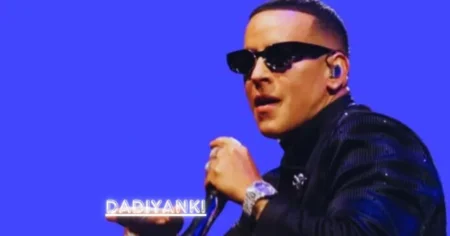Early Life and Background
Casey Marie Anthony was born on March 19, 1986, in Warren, Ohio. Raised in Orlando, Florida, she grew up in a family that was often in the public eye. Her father, George Anthony, worked as a police officer, and her mother, Cindy Anthony, was a homemaker. Casey was the eldest of three children, with a younger brother and sister.
Education and Early Career
Casey Anthony attended the University of Florida, where she briefly studied criminal justice. However, she did not complete her degree. During her early twenties, Casey worked various jobs, including positions at retail stores and as a waitress. Her aspirations included a career in event planning, but her life took a dramatic turn that overshadowed her professional ambitions.
Biography
| Attribute | Details |
| Full Name | Casey Marie Anthony |
| Date of Birth | March 19, 1986 |
| Place of Birth | Warren, Ohio, USA |
| Nationality | American |
| Known For | Infamous legal case involving the death of her daughter, Caylee Anthony |
| Occupation | Previously worked in various jobs; known primarily for her legal case |
| Key Events | Disappearance of daughter Caylee (2008), Arrest (2008), Trial and Acquittal (2011) |
| Verdict | Acquitted of first-degree murder; convicted of providing false information to law enforcement |
| Post-Trial Life | Largely private with ongoing legal and financial issues |
| Impact | Controversial figure; significant media and public scrutiny |
The Disappearance of Caylee Anthony
The tragic events that catapulted Casey Anthony into the national spotlight began with the disappearance of her two-year-old daughter, Caylee Anthony. Caylee was last seen on June 16, 2008. Her mother reported her missing on July 15, 2008, after not having seen her for a month. The delay in reporting Caylee’s disappearance raised immediate suspicions.
The Investigation
The search for Caylee Anthony quickly became a media sensation. Authorities conducted an extensive investigation, involving hundreds of volunteers and law enforcement officers. The case was highly publicized, with frequent updates on television and in the press. Casey Anthony’s behavior during this time, including partying and lying about her daughter’s whereabouts, fueled public outrage and media scrutiny.
The Arrest and Charges
On October 14, 2008, Casey Anthony was arrested on charges of child neglect, making false statements to law enforcement, and obstructing a criminal investigation. The charges stemmed from her inconsistent statements and failure to provide information about Caylee’s whereabouts. The media dubbed her “America’s Most Hated Mom,” and the case continued to attract widespread attention.
The Trial
The trial of Casey Anthony began on May 9, 2011. The prosecution argued that Casey had murdered her daughter and then covered up the crime. They presented evidence that included forensic testimony about Caylee’s remains, which were discovered in a wooded area near the Anthony family home. The defense team, led by attorney Jose Baez, argued that Caylee had drowned in the family pool and that Casey had panicked and covered up the accidental death.
The trial was one of the most closely watched in recent history. Casey Anthony’s defense team presented an alternative theory that Caylee had died as a result of an accidental drowning, a claim that was heavily debated. The prosecution’s case faced challenges, including the lack of a clear cause of death and the contentious nature of the evidence presented.
Verdict and Acquittal
On July 5, 2011, the jury delivered a verdict of not guilty on the charges of first-degree murder, aggravated child abuse, and aggravated manslaughter. Casey Anthony was, however, found guilty of four counts of providing false information to law enforcement. The verdict sparked intense reactions from the public and media, with many expressing disbelief and outrage at the outcome.
Post-Trial Life
Following her acquittal, Casey Anthony remained a controversial figure. She faced significant public backlash and legal battles. In the years after the trial, she lived a largely private life, occasionally appearing in the media but avoiding the spotlight as much as possible. Casey’s life after the trial included legal troubles related to defamation lawsuits and financial difficulties.
Media and Public Perception
Casey Anthony’s case generated significant media coverage and public debate. She became a polarizing figure, with opinions about her guilt or innocence varying widely. The media’s portrayal of her, along with the sensational nature of the trial, contributed to the widespread fascination and controversy surrounding her.
Legal and Financial Challenges
Post-trial, Casey Anthony faced several legal and financial challenges. She was ordered to pay restitution to the state of Florida for the costs incurred during the search for her daughter. Additionally, she faced various lawsuits from individuals and organizations seeking damages for the impact of her case. Despite these challenges, Casey continued to make occasional media appearances and explore opportunities for personal and professional reinvention.
Psychological and Social Impact
The Casey Anthony case had a significant psychological and social impact on those involved, including the Anthony family and the broader community. The trauma of Caylee’s disappearance and death, combined with the intense media scrutiny, had lasting effects on the family. The case also highlighted issues related to child protection, legal proceedings, and media ethics.
Legacy and Ongoing Controversies
The legacy of the Casey Anthony case continues to be a subject of debate and controversy. It remains a prominent example of a high-profile legal case involving complex issues of family dynamics, media influence, and public perception. The case has been the subject of numerous documentaries, books, and discussions, contributing to its lasting impact on American legal and media culture.
Conclusion
Casey Anthony’s life and the tragic case surrounding her daughter Caylee continue to evoke strong emotions and debates. From her early life in Ohio to the dramatic legal battle that followed, Casey’s story is a complex and multifaceted one. The case remains a poignant reminder of the complexities of the justice system, the influence of media, and the profound impact of loss and grief.
Read More: Drew Drechsel: The American Ninja Warrior Champion





